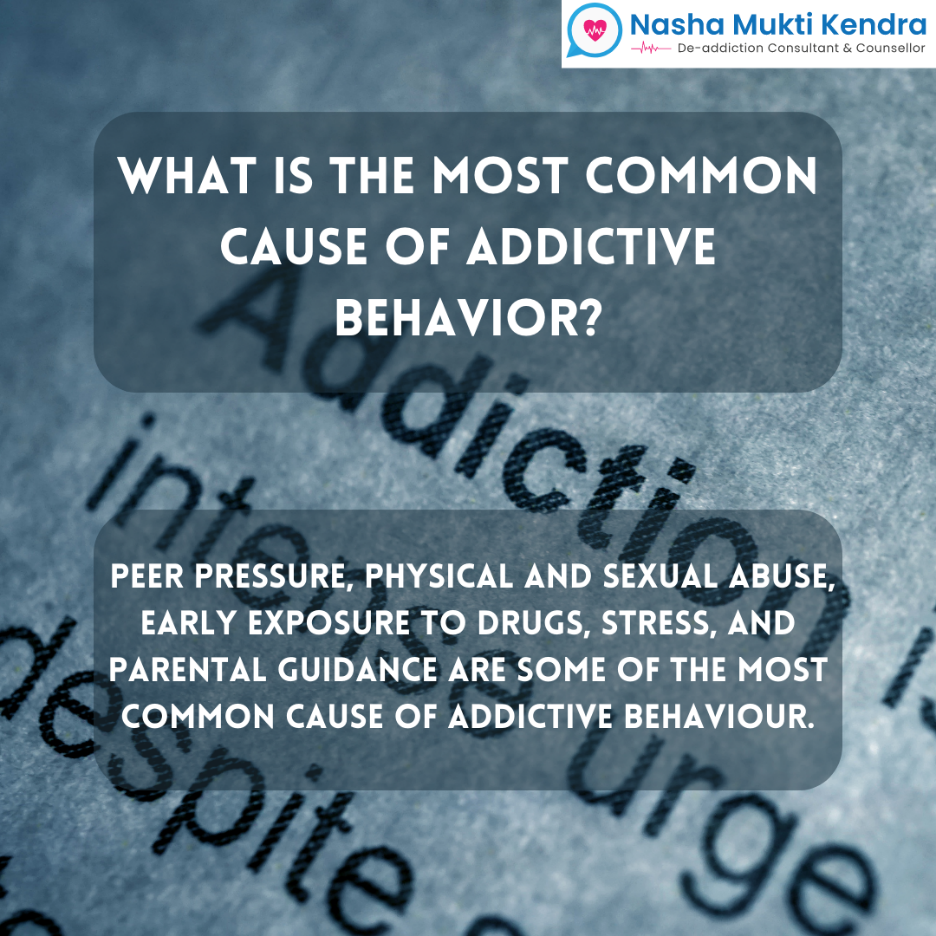Addictive behaviours have become a growing concern in today’s society, particularly among adolescents. The development of addictive behaviour in adolescents can have significant implications for their physical, mental, and social well-being. In this blog, we will delve into the meaning of addictive behaviours, examine the factors contributing to their development in adolescents, and explore potential strategies for prevention and intervention.
I. Defining Addictive Behaviors:
- Understanding addiction: A brief overview
- Addictive behaviors: Substance and process addictions
- The distinction between substance abuse and addiction
II. The Development of Addictive Behavior in Adolescents:
Vulnerability factors:
- Biological predispositions
- Psychological factors
- Social and environmentall influences
Peer influence and social pressures:
- Importance of peer relationships during adolescence
- Impact of peer pressure on addictive behavior
- Social media and its role in addiction development
Co-occurring mental health disorders:
- The relationship between addiction and mental health
- Common mental health disorders in adolescents
- Dual diagnosis: Addressing addiction and mental health simultaneously
Self-medication and coping mechanisms:
- Emotional regulation and addictive behaviors
- Escapism and addiction
- Addressing underlying issues to prevent addiction
III. Prevention and Intervention Strategies:
Education and awareness programs:
- School-based prevention programs
- Public health campaigns and community initiatives
- Empowering adolescents through knowledge
Parental involvement and support:
- Parent-child communication
- Setting boundaries and promoting healthy behaviors
- Recognizing warning signs and seeking professional help
Early identification and intervention:
- Screening and assessment tools
- School counseling and mental health services
- Collaboration between healthcare professionals, educators, and families
Building resilience and coping skills:
- Developing emotional regulation techniques
- Encouraging healthy coping mechanisms
- Strengthening support networks and promoting positive activities
IV. The Role of Society and Policy:
Creating a supportive environment:
- Addressing stigmatization and stereotypes
- Promoting inclusivity and reducing marginalization
- Enhancing access to treatment and rehabilitation services
Policy and legislation:
- Implementing evidence-based prevention strategies
- Regulating advertising and marketing practices
- Allocating resources for addiction research and treatment
V. Treatment and Recovery:
Detoxification and withdrawal management:
- Importance of supervised detoxification
- Medical interventions to manage withdrawal symptoms
- Ensuring a safe and supportive environment during detox
Behavioral therapies:
- Cognitive-behavioral therapy (CBT)
- Motivational interviewing (MI)
- Contingency management (CM)
- Family therapy and its effectiveness in adolescent addiction treatment
Medication-assisted treatment (MAT):
- Pharmacological interventions for substance addictions
- Benefits and considerations of MAT in adolescents
- Collaborative approach between medication and therapy
Peer support groups and aftercare:
- Role of support groups like Narcotics Anonymous (NA) and Alcoholics Anonymous (AA)
- Importance of ongoing support in maintaining recovery
- Transitioning from treatment to aftercare programs
VI. The Impact of Technology on Addictive Behaviors:
Internet and gaming addiction:
- Prevalence and signs of internet and gaming addiction
- The impact of excessive screen time on adolescents’ well-being
- Digital detox and creating a healthy balance
Social media addiction:
- The allure of social media platforms for adolescents
- Negative consequences of excessive social media use
- Promoting digital literacy and responsible online behavior
Online resources for addiction support:
- Mobile applications for addiction recovery
- Online therapy and counseling services
- The potential benefits and limitations of virtual support
VII. The Role of Schools and Education:
Comprehensive health education:
- Integrating addiction education into school curricula
- Teaching coping skills and stress management techniques
- Encouraging peer support networks
School-based prevention programs:
- Effective prevention strategies implemented in schools
- Training teachers and staff to recognize signs of addiction
- Establishing partnerships with community organizations
Trauma-informed approaches:
- Understanding the impact of trauma on addiction development
- Creating a supportive and safe environment for trauma-affected students
- Collaborating with mental health professionals for trauma-informed care
Addressing addictive behaviours in adolescents requires a multifaceted approach that encompasses prevention, early identification, treatment, and ongoing support. By implementing evidence-based strategies, raising awareness, involving families, and fostering a supportive societal environment, we can empower adolescents to make healthier choices and overcome addiction challenges. Additionally, recognizing the influence of technology and incorporating addiction education into schools can further contribute to prevention efforts. Together, we can strive towards a society that supports the well-being and resilience of our youth, ensuring a brighter future free from the grips of addictive behaviours.
Get help from Nasha Mukti Kendra
At Nasha Mukti Kendra, experienced clinical psychologists provide American-based therapy. Moreover, American-based therapy is also known as Love and Care therapy. You can contact us if you or your loved ones are struggling with any kind of addiction. We have our centres all over the country. Get help from our certified therapist.
